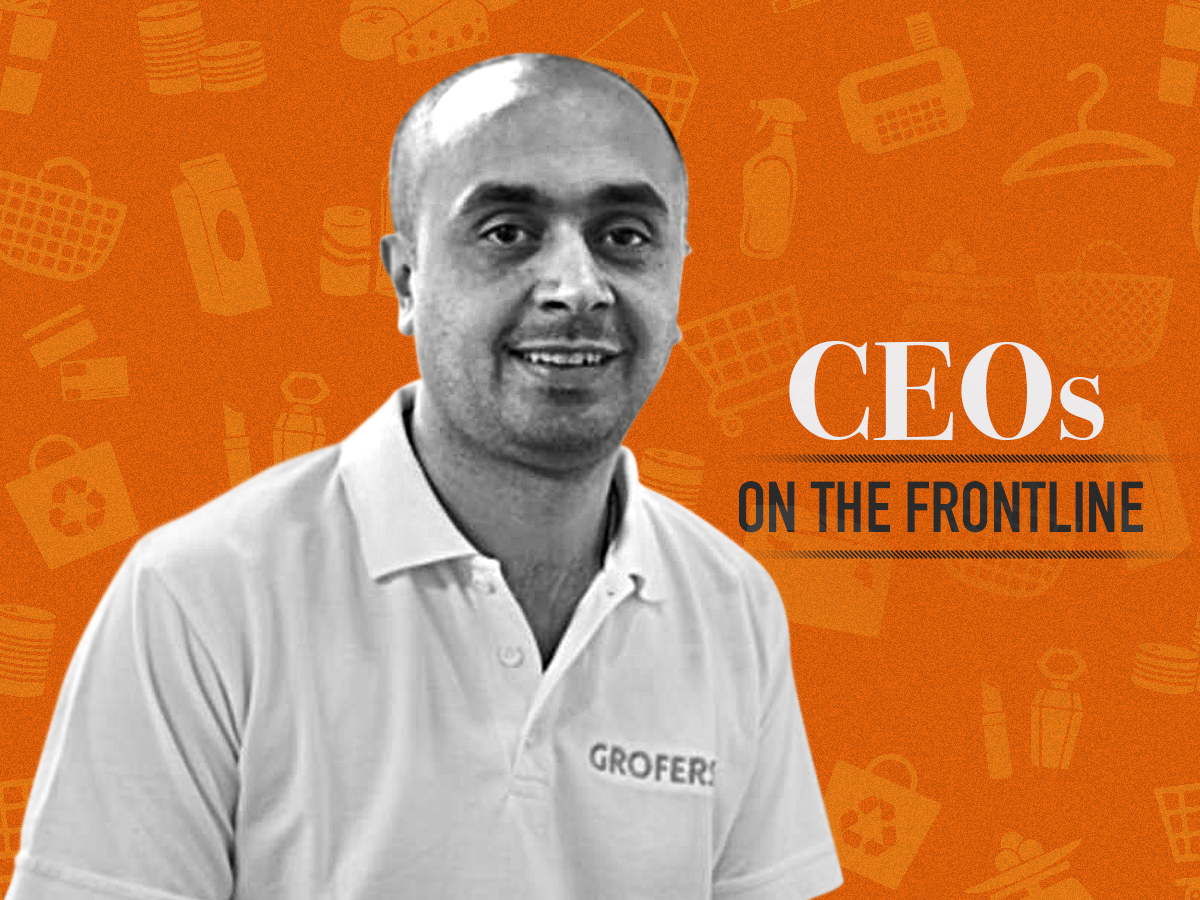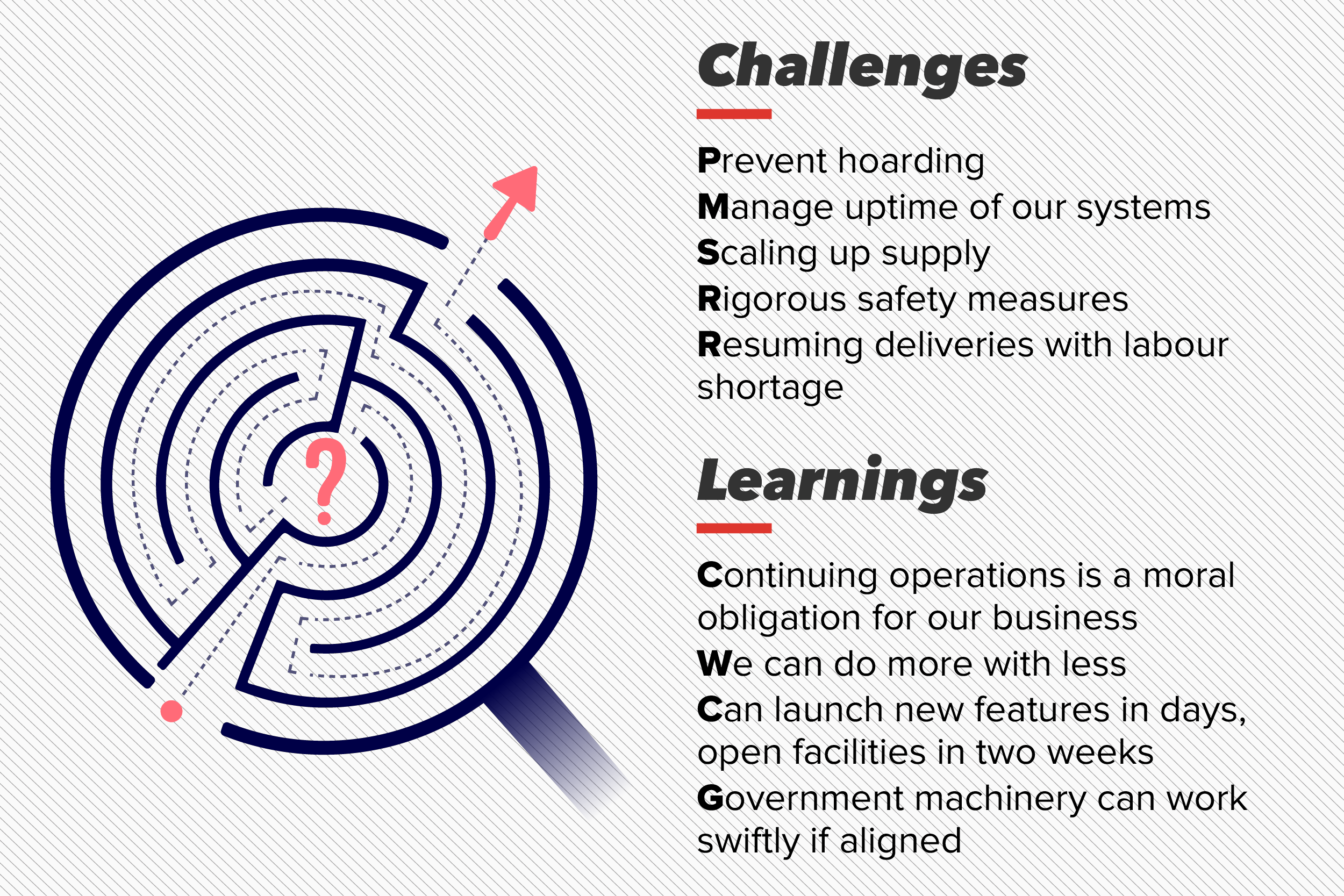
In the wake of the Covid-19 virus outbreak, businesses have been faced with unprecedented challenges as they try and fulfil consumer demand in a vastly changed environment. Online grocery retailing is one sector that has witnessed a massive demand surge, leading to capacity constraints and operational bottlenecks.
In the first story of this series, ET’s Samidha Sharma spoke to Albinder Dhindsa, CEO of Grofers, on what it means to a steer an essential service at such a critical time. Dhindsa said the SoftBank-backed company has built a new warehouse in just two weeks to cope with never-seen-before demand, something it would have never attempted normally. Excerpts:
What was the moment when you realised the impact of the outbreak on your business?
In February-end, when some local cases came up and India started to isolate infected people, we realised our business was going to be impacted. We had our first team meeting on the last Monday of that month to figure out what measures we can take. Although we decided not to add excess inventory, we started establishing operational best practices to isolate facilities (including offices) to minimise any intra-facility movements.
Once you realised the massive demand, what was the first thing you did?
Unfortunately, our first move had to be defensive – to stop hoarding… especially among some segments of buyers who wanted to corner supplies to sell on the black market. The second week of March was primarily spent in preventing fraud and hoarding. We had to preserve inventory for genuine customers.
This was followed by implementing limits on how much could be bought and best ways to keep systems up as the surge continued. All of this changed dramatically when the Janata Curfew and lockdown were announced.
What were your top three challenges in the first and second weeks of the lockdown?
In the first week, preventing hoarding, managing uptime of our systems and scaling supply to accept more orders were the primary challenges even while implementing rigorous safety measures like stopping warehouses every three hours for cleaning.
By the second week, resuming on-the ground supplies became key, as the lockdown halted all movement of people and goods. The recovery of stalled systems has been slower as employees are either scared or unable to get back to work, even though we are an essential service.

How will this phase shape you as a company?
This short period has…made us realise that continued operations are a moral obligation for a business like ours; it has energised the entire team to do more with less. We are now deploying new features every day and looking for creative answers that will persist for the long term.
Case in point, the implementation of stock levels, temperature checks and zero touch overnight deliveries are projects that were implemented within a single week while most teams were working remotely. When you see the supply team open an entirely new facility within two weeks, it motivates everyone in the team to aim higher.
What do you do to keep employees motivated despite the health risks?
I am just in awe of the commitment with which our supply teams have taken responsibility to keep supplies going. At this time, it is very easy to empathise with customers as our families are in similar situations. We had to take tough calls over the last week about cancelling orders or rescheduling them. The team decided that if we are going to cancel any customer orders then we first need to cancel our internal team orders.
What should be a CEO’s priority given that the economy is in such a state?
Taking care of people, especially those on the front lines is the top priority. Businesses and P&L’s can be rebuilt but keeping the team healthy and together trumps everything. We have gone through down cycles that taught us these lessons, but the current situation is pushing all of those learnings to the extreme.
Any revelations in the last two weeks?
The pace at which our government machinery can actually move. From enforcing a lockdown to gathering multiple stakeholders at city and state level to the central government, it has been great to witness an alignment in mission that you usually reserve for private companies.
How do you plan for the next one year?
I don’t think we can have a plan for the year. The guiding principles have to be – minimise disruption in business, conserve cash and focus on the here and now. We need to keep our frontline staff healthy and try to reach as many customers as possible. If we can do that and come out of it with a decent balance sheet, it would be great.
Leave a Reply